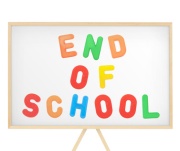Tags
cognitive distortions, end of school, insecure or disorganized attachment, Memorial Day, negative behavior, teachers, transition planning, trauma triggers, trauma-sensitive interventions, trauma-sensitive schoosl
 It’s that time of the year again. Two weeks until Memorial Day. Only days until the end of school. Most children relish this time of the year – field trips, awards ceremonies, anticipation of a long summer vacation. They are proud of their achievements and look forward to new adventures in the next grade level.
It’s that time of the year again. Two weeks until Memorial Day. Only days until the end of school. Most children relish this time of the year – field trips, awards ceremonies, anticipation of a long summer vacation. They are proud of their achievements and look forward to new adventures in the next grade level.
But as every teacher knows, there are a few who don’t seem to notice that there’s a party going on. They balk at every change in routine, and can be counted on to disrupt every assembly or science fair. They threaten to ruin everyone else’s good time with their surly remarks or inappropriate actions.
This spike in negative behavior occurs most frequently among children whose lives are marred by instability or loss. These children have an almost visceral reaction to the loss of familiar people and routines. Activities that signal these will soon be gone trigger old feelings of abandonment and shame.
Though children can neither name nor understand what’s going on, they are driven by an anger and fear they cannot contain. They need additional support to regain control of their emotions and behavior.
Here are some ideas you can try:
Individual Transition Planning
Most schools schedule “move up days” at the end of the year to ease the progression from one grade level or school to another. Children with histories of early trauma or adversity usually need more than one visit.
Some benefit from spending time during the summer helping their new teacher set up the room, or organize supplies. Others find it helpful to meet key support personnel like the building principal, the school nurse, the secretary, and the counselor or school social worker. Knowing the names of these key players can go a long way in easing the anxiety of many children.
Review/Rehearse/Changes in Routine
Children with histories of adversity and trauma sometimes have a limited exposure to places beyond their local neighborhoods. Their understanding of field trip destinations are often misinformed. Proving them with opportunities for virtual tours and discussions of what to expect can ease their fears and increase the chances of a successful outing.
The same is true for assemblies, award ceremonies, and other end of the year performances. The more children know about the sequence of events, the behaviors that are expected, and roles they are expected to play, the better able they will be to adjust to the changes. Some children are more relaxed if they have a job to do that keeps them in close proximity to a familiar adult.
Say Good-bye
Children’s attachment relationships play a significant role in their understanding of who they are and what they can expect from others. Insecure or disorganized attachments make children feel invisible, with little expectation of affection or care from others. Relationships with teachers are often the best hope children have for correcting these distortions and moving on with their lives.
Unfortunately, the end of the school year almost always means a change of teacher. Children with early trauma histories cannot adjust to the inevitability of this situation without adult support. Talk about how important relationships between teachers and children can be. Use pictures to highlight memories of things you and specific children did together. Write “good bye notes” to children telling them some of your favorite memories of them. Wish them well and remind them that they will always have a special place in your heart.
